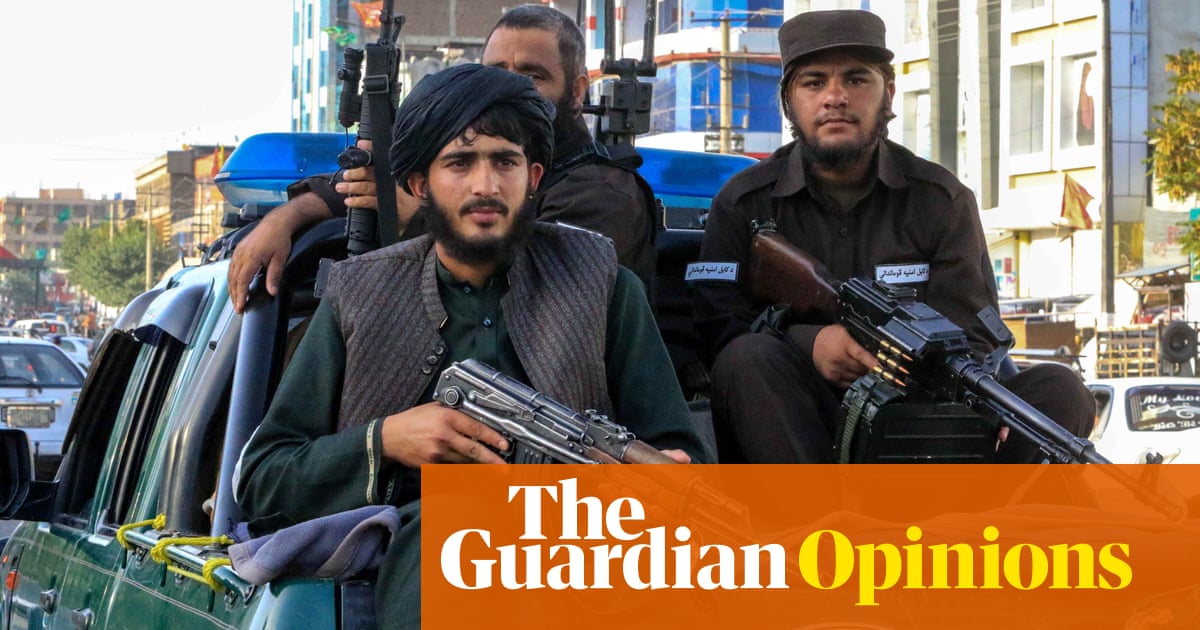
Show caption Taliban security forces at the scene of a bomb blast in Kabul this month. ‘Cracking down on your citizens is easier than ensuring they have food.’ Photograph: EPA Opinion The Guardian view on the Taliban’s victory: Afghanistan’s nightmare is intensifying Editorial One year after the fall of Kabul, the people face both intensifying repression and mass hunger Fri 12 Aug 2022 18.30 BST Share on Facebook
Share on Twitter
Share via Email
On Monday it will be a year since the Taliban seized Kabul, marking “not the collapse of a regime, but the collapse of the dreams of a nation”, in the words of one Afghan interviewed by the BBC. Some welcomed the departure of foreign troops and the prospect of peace after two decades of appalling civilian casualties and corruption. But despite the violence and suicide bombings, for many others these years were shaped by increases in life expectancy and literacy, and new opportunities and aspirations: women in rural areas as well as big cities wanted education and freedom of movement.
The nightmare is deepening. Afghans are now living with both Taliban repression and mass hunger. The claim was that, 20 years after their overthrow by the US-led coalition, the world was likely to see a more moderate “Taliban 2.0” when they took power. It is true that the mass executions many feared did not materialise. But critics and opponents have been killed or arbitrarily detained and tortured, and media silenced. A struggle between pragmatists and hardliners is ongoing: in March, excited girls arrived at secondary schools to resume their studies – only to be told that classrooms remained closed to them after the central leadership overruled education officials. Women have been barred from many jobs, and prevented from travelling or going to work unless accompanied by a male guardian. Some have been threatened or beaten for ignoring the order to cover their bodies or faces in line with the Taliban’s interpretation of Islamic dress codes.
Observers say that for now at least the Taliban appear less corrupt than their predecessors. But they are seeking to translate a rural insurgency into national government, and cannot meet the basic needs of 38 million Afghans in the midst of economic collapse. Cracking down on your citizens is easier than ensuring they have food. The UN calls this the world’s largest humanitarian crisis; parents have been forced to sell kidneys and children. The World Food Programme is feeding almost half the population. Though the US has issued sanctions exemptions for humanitarian support, Afghans need development aid and a functioning economy. The brain drain comes not just from fleeing young professionals, but the squandering of female talent.
Soaring global food prices and waning international sympathy could prove deadly when winter arrives. And Taliban rule is no guarantor of peace. Islamic State-Khorasan, an IS offshoot, has continued attacks. An insurgency has picked up again in the country’s north-east. The fact that al-Qaida’s leader, Ayman al-Zawahiri, was living in Kabul, in clear breach of the Doha agreement on US withdrawal, which stated that Afghanistan would not host terrorists, is likely to make progress on economic issues harder. Yet strikingly, Joe Biden did not mention the Taliban when he announced this month that a US strike had killed the terrorist. The US does not want to see them succeed, yet cannot afford for them to fail. An Afghanistan sliding back into civil war would be far more dangerous for the west, which would like to put Afghanistan behind it.
Washington has no desire to dwell on its own role and responsibility. Public concern has been largely redirected towards Ukraine. Yet the women and men who have dared to protest against Taliban oppression; the teenage girls covertly attending school; and indeed the Afghans who fled to the UK and elsewhere, but remain unable to rebuild their lives – all these hope for, and deserve, much better.








